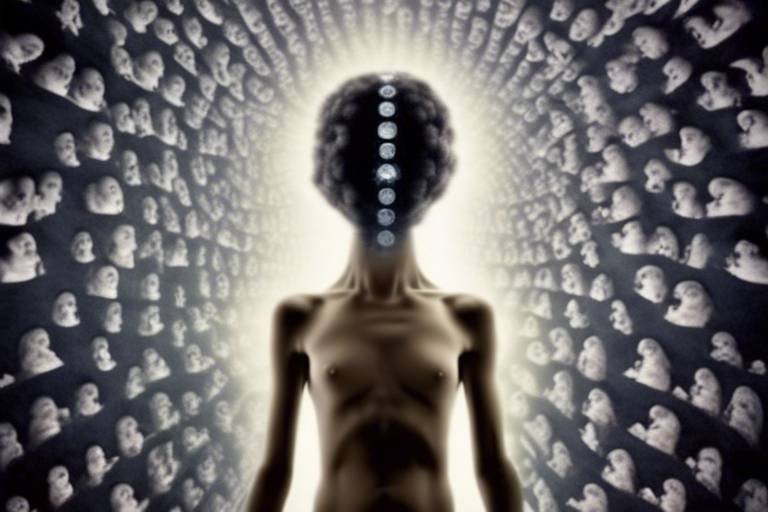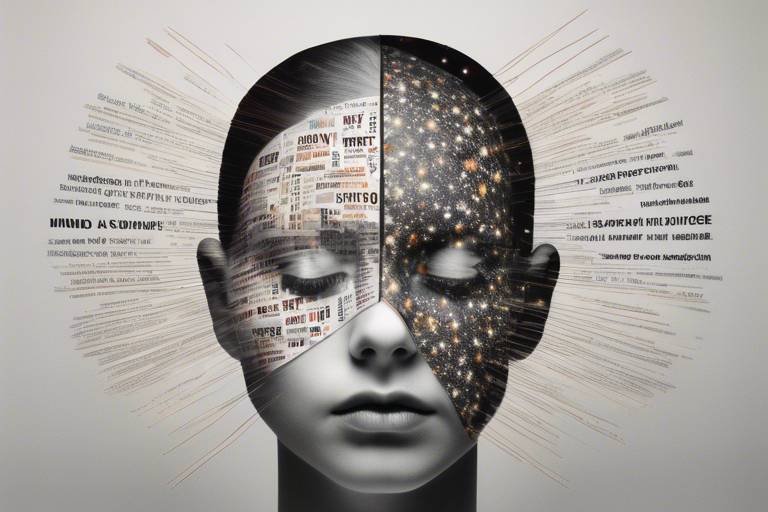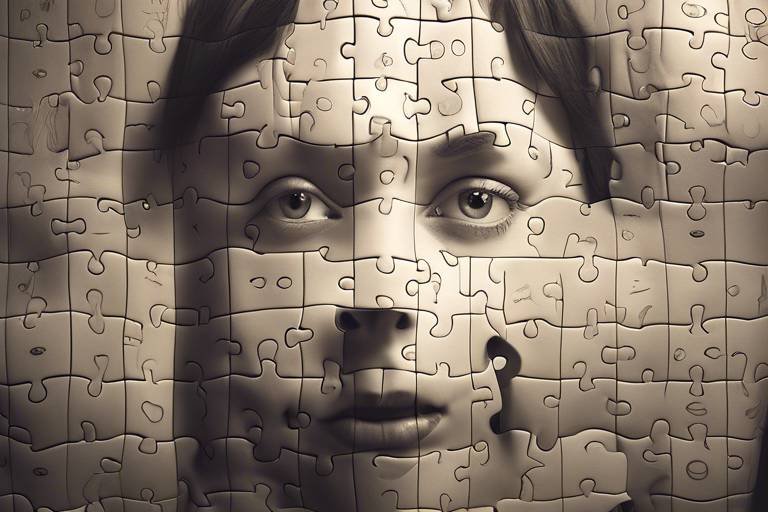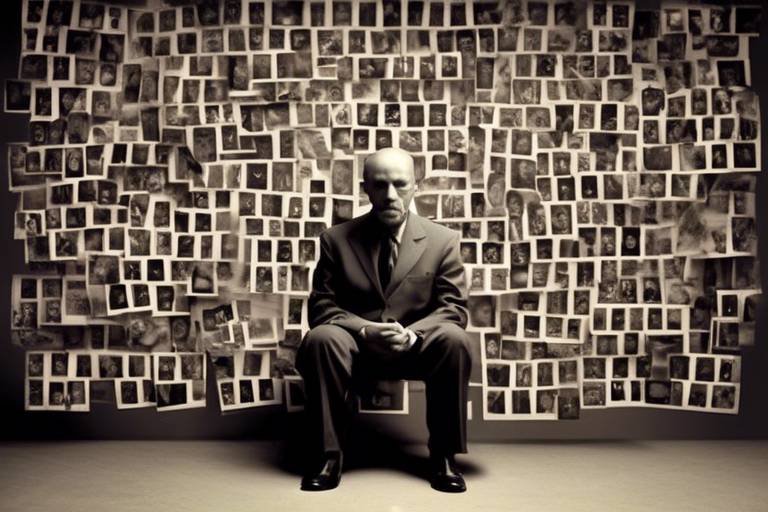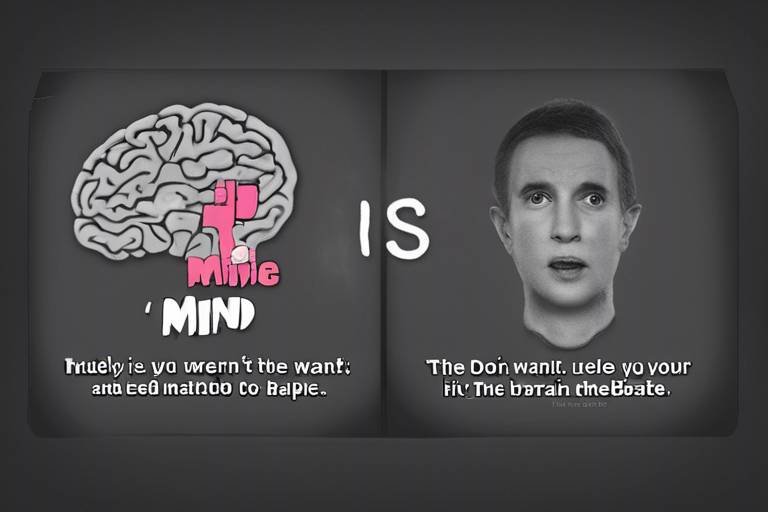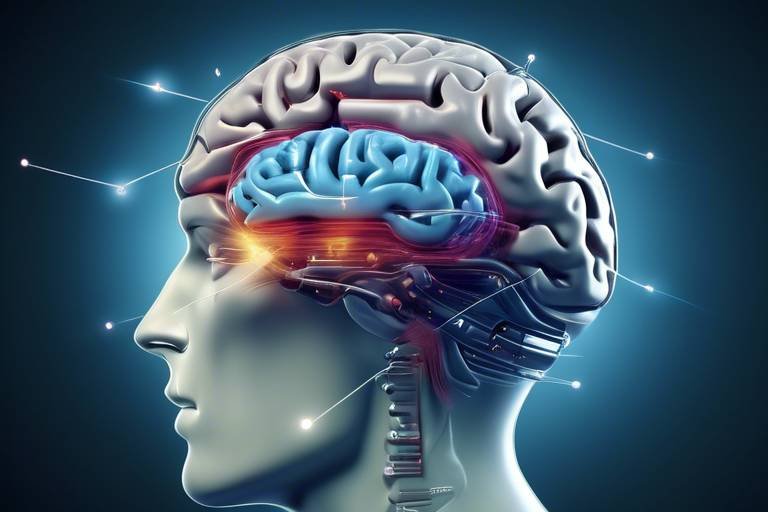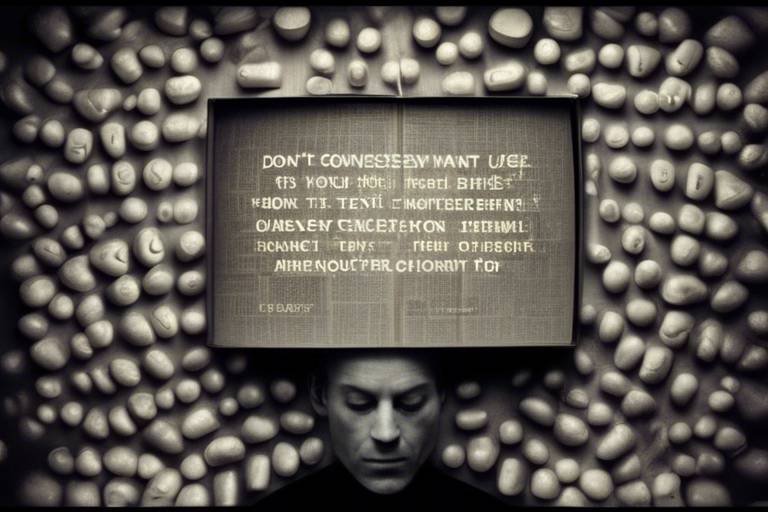Can Consciousness Be Transferred To Another Body?
The idea of transferring consciousness to another body is a concept that has captivated the minds of scientists, philosophers, and dreamers alike. It's a notion that stretches the boundaries of our understanding of what it means to be alive and conscious. Imagine a world where your thoughts, memories, and experiences could be moved from one physical form to another, much like transferring files from one computer to another. Sounds like something out of a sci-fi movie, right? But as we delve deeper into the mysteries of the mind and the nature of consciousness, we begin to uncover the tantalizing possibilities that lie ahead.
Throughout history, humans have sought to understand the essence of consciousness. Is it merely a product of brain activity, or is there something more profound at play? This question gets to the heart of our existence and identity. To transfer consciousness, we first need to grasp what it truly is. Many definitions exist, but at its core, consciousness encompasses our awareness of ourselves and our environment. It includes our thoughts, feelings, and sensations, creating a rich tapestry of human experience.
As we explore the potential for consciousness transfer, we must also consider the implications it holds for identity. If your consciousness could be transferred to another body, would you still be you? Or would you become a different entity entirely? This leads us to ponder the philosophical ramifications of such a transfer. Would it challenge our understanding of life and death? Would it redefine what it means to be human? These questions are not just philosophical musings; they are fundamental inquiries that could reshape our future.
In a world where consciousness transfer becomes a reality, we could witness a profound shift in how we perceive aging, mortality, and personal identity. Imagine if you could choose a new body, free from the limitations of age or illness. The implications for healthcare, aging, and even social dynamics would be staggering. But with such power comes responsibility. Would we be ready to handle the ethical dilemmas that arise from creating digital or biological copies of ourselves?
As we stand on the brink of technological advancements that could one day make consciousness transfer possible, it’s essential to keep the conversation going. We must engage with the ethical, philosophical, and scientific aspects of this topic to ensure that if we ever reach that point, we do so with a clear understanding of the consequences.
- What is consciousness?
Consciousness is the state of being aware of and able to think about one's own existence, thoughts, and surroundings. It encompasses our perceptions, thoughts, and feelings.
- Can consciousness be transferred?
Theoretically, consciousness transfer could occur through digital uploading or biological means, but these concepts are still largely speculative and face numerous scientific and ethical challenges.
- What are the ethical implications of consciousness transfer?
Ethical concerns include questions of identity, the nature of self, potential exploitation, and the consequences of creating digital or biological duplicates of individuals.
- How does consciousness transfer challenge our understanding of identity?
It raises questions about what makes us who we are. If our consciousness can exist in multiple bodies, it complicates our traditional views of personal identity and continuity.
- Will we ever achieve consciousness transfer?
While advancements in neuroscience and artificial intelligence are promising, the feasibility of consciousness transfer remains uncertain. It requires further research and ethical considerations.

The Nature of Consciousness
Understanding consciousness is fundamental when we dive into the fascinating and often perplexing topic of its transfer. But what exactly is consciousness? At its core, consciousness can be described as the state of being aware of and able to think about one's own existence, thoughts, and surroundings. It's that little voice in your head that narrates your life, the feelings that make you human, and the awareness that you are, indeed, alive. This seemingly simple definition, however, is just the tip of the iceberg. Philosophers and neuroscientists alike have grappled with the complexities of consciousness for centuries, leading to a multitude of definitions and theories that highlight its enigmatic nature.
To further complicate matters, consciousness is often divided into various components, including awareness, self-awareness, and subjective experience. Awareness refers to the ability to perceive stimuli from the environment, while self-awareness involves recognizing oneself as a distinct entity. Subjective experience, on the other hand, encompasses the personal, qualitative aspects of consciousness—like the way chocolate tastes or the feeling of joy when you see a loved one. These elements raise important questions: Are they all necessary for consciousness to exist? Can one exist without the others?
Philosophically, the debate around consciousness is rich and varied. Some argue that consciousness is a byproduct of brain activity, while others suggest that it exists independently of the physical body. This leads us to the concept of dualism, famously proposed by René Descartes, which posits that the mind and body are separate entities. Meanwhile, proponents of materialism argue that consciousness arises solely from physical processes in the brain. This ongoing debate is not just academic; it has profound implications for our understanding of identity, existence, and what it means to be human.
In recent years, advancements in neuroscience have begun to shed light on this complex issue. Techniques like functional MRI and electroencephalography (EEG) allow scientists to observe brain activity in real-time, providing insights into how different brain regions contribute to various aspects of consciousness. For instance, studies have shown that certain neural networks are activated during self-reflection, while others are engaged when processing sensory information. These findings suggest that consciousness is not a singular entity but rather a dynamic interplay of various cognitive processes.
Despite these scientific advancements, consciousness remains one of the greatest mysteries of our time. The question of whether it can truly be understood, let alone transferred, continues to spark intrigue and debate. As we explore the theories of consciousness transfer, it's essential to keep in mind the intricate tapestry of consciousness itself—an ever-evolving puzzle that challenges our understanding of identity and existence.

Theories of Consciousness Transfer
When we dive into the fascinating waters of consciousness transfer, we encounter a myriad of theories that attempt to explain how this extraordinary feat might be achieved. The concept isn't just a staple of science fiction; it has captured the imagination of scientists, philosophers, and futurists alike. At its core, the idea revolves around the possibility of moving consciousness from one body to another, or even into a digital realm. But how could this possibly work?
Two primary theories dominate the conversation: digital uploading and biological transplantation. Each offers a unique perspective on the mechanisms that could facilitate consciousness transfer, and both come with their own sets of challenges and implications for humanity. Let's break down these theories further.
The first, and perhaps the most talked-about theory, is digital consciousness uploading. This notion suggests that we could scan a human brain in such detail that every synapse and neural connection is mapped out. Once this data is captured, it could be uploaded into a computer system, effectively creating a digital replica of a person's consciousness. Imagine being able to live forever in a virtual world or even transferring your consciousness into a robotic body! Sounds like something straight out of a sci-fi movie, right?
However, this theory isn't without its challenges. The technology required to achieve such a feat is still in its infancy, and there are profound ethical implications to consider. For instance, if a digital consciousness exists, is it truly the same person, or merely a copy? This question leads us to the heart of identity and existence.
Speaking of ethical implications, the idea of creating digital identities raises significant moral questions. If we can upload consciousness, what happens to the original person? Are they still alive, or have they effectively died, leaving behind just a digital echo? The potential for misuse is also a concern, with the possibility of creating multiple copies of a single consciousness. This could lead to a world where individuals can live forever, but at what cost to society?
Now, let’s talk about technological feasibility. While advancements in neuroscience and artificial intelligence are progressing rapidly, we are far from achieving the level of detail required to upload consciousness. Current technologies, such as brain-computer interfaces, show promise but are still rudimentary. The road ahead is long and filled with both technical hurdles and ethical dilemmas.
On the other side of the spectrum, we have the theory of biological consciousness transfer. This idea posits that consciousness could be physically transferred between living bodies, akin to a soul swap. While this notion might seem far-fetched, some researchers speculate that understanding the biological mechanisms behind consciousness could one day allow for such a transfer.
One of the key challenges here is the sheer complexity of the human brain and how consciousness is generated. Unlike digital uploading, which relies on technology and data transfer, biological transfer would require a deep understanding of how to manipulate biological systems without losing the essence of what makes us who we are.
Both theories present intriguing possibilities, but they also raise critical questions about the nature of consciousness itself. Is it merely a byproduct of our biological structures, or is it something more profound? As we explore these theories, we must also consider the implications for our understanding of identity, existence, and what it means to be human.
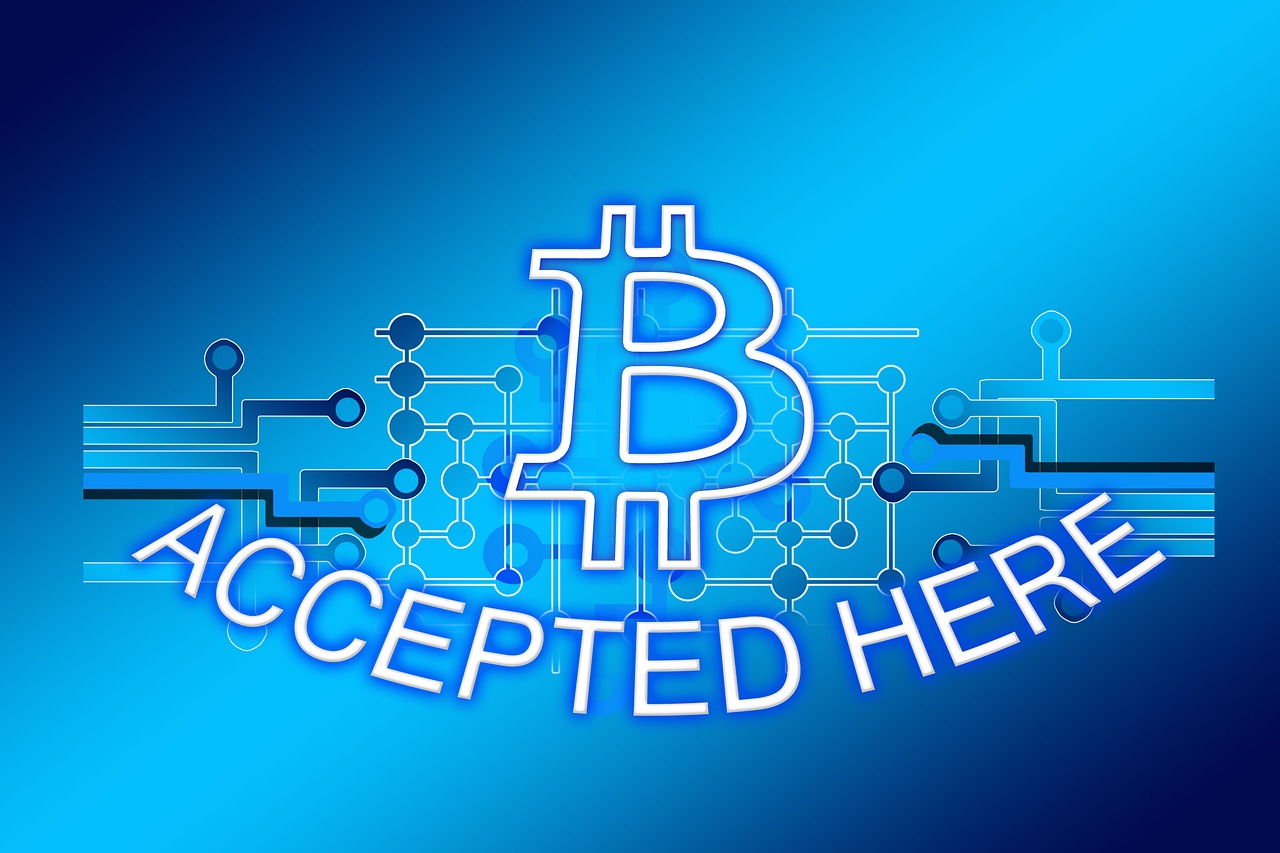
Digital Consciousness Uploading
Imagine a world where your thoughts, memories, and experiences could be transferred into a digital format, allowing your consciousness to persist beyond the limitations of your biological body. This concept, known as , is not merely a plot device from science fiction; it represents a fascinating intersection of technology, neuroscience, and philosophy. The idea suggests that our minds could be replicated and stored in a computer system, offering a form of immortality that transcends physical existence.
At its core, digital consciousness uploading hinges on the notion that our mental states can be reduced to data. This raises the question: if we could map the neural connections and synaptic patterns of a brain, could we then recreate the essence of a person? Proponents argue that as technology advances, particularly in fields like neuroimaging and artificial intelligence, we may eventually develop the tools necessary to achieve this monumental feat. Imagine a future where you could live on in a virtual realm, experiencing life through a digital avatar while your physical body ages and eventually fades away.
However, the implications of such a transfer are profound and multifaceted. For one, it challenges our understanding of identity. If your consciousness is uploaded to a computer, are you still the same person, or is it merely a copy? This question leads to a myriad of ethical considerations. For instance, if multiple copies of your consciousness exist, which one is the "real" you? Would these digital entities have rights? Furthermore, what happens to the original consciousness once the upload is complete? These questions plunge us into a deep philosophical abyss, forcing us to reconsider what it means to be human.
Moreover, the potential for immortality through digital uploading brings about existential dilemmas. Would living forever in a digital landscape be a blessing or a curse? The thought of endless existence might sound appealing, but it also raises concerns about the quality of life and the nature of experiences in a virtual world. Would emotions, relationships, and the richness of human experience translate into a digital format, or would they become mere simulations devoid of true meaning?
As we delve deeper into the realm of digital consciousness, it's essential to consider the current technological landscape. Advancements in brain-computer interfaces and machine learning are paving the way for potential breakthroughs in this domain. Researchers are making strides in understanding the brain's complex architecture, and while we are still far from achieving full consciousness uploading, the groundwork is being laid. The following table summarizes some of the key technologies involved in this process:
| Technology | Description |
|---|---|
| Neuroimaging | Techniques like fMRI and PET scans that help visualize brain activity and structure. |
| Brain-Computer Interfaces | Devices that create direct communication pathways between the brain and external devices. |
| Artificial Intelligence | Machine learning algorithms that could analyze and simulate human thought processes. |
In summary, while the concept of digital consciousness uploading tantalizes the imagination, it also invites a plethora of questions and ethical dilemmas. As we progress technologically, we must tread carefully, ensuring that we do not lose sight of what it means to be human in our quest for digital immortality.
- What is digital consciousness uploading? It is the theoretical process of transferring a person's consciousness into a digital format, potentially allowing it to exist independently of the biological body.
- Is it possible to upload consciousness today? Currently, the technology does not exist to fully upload consciousness, but advancements in neuroscience and AI are making strides toward this possibility.
- What are the ethical implications? Ethical concerns include questions of identity, rights of digital entities, and the consequences of creating copies of consciousness.

Ethical Considerations
The concept of digital consciousness transfer is not just a fascinating scientific idea; it brings with it a myriad of ethical dilemmas that we must grapple with. Imagine a world where your thoughts, memories, and personality can be uploaded to a computer. Sounds like a sci-fi movie, right? But as we inch closer to this reality, we need to ask ourselves: What does it mean to be human? And more importantly, what happens to our identity when we separate consciousness from the biological body?
One of the most pressing ethical issues revolves around the creation of digital identities. If consciousness can be uploaded, does the digital version of a person have the same rights as the biological one? Would it be ethical to create multiple copies of a consciousness? The implications are vast and troubling. For example, if a digital copy of a person is created, and that copy commits a crime, who is held accountable? The original person? The digital copy? Or perhaps neither?
Furthermore, the potential for exploitation raises significant concerns. Imagine corporations owning digital versions of individuals, using them for profit without consent. This could lead to a new form of slavery, where digital consciousnesses are exploited for labor or entertainment. The idea of ownership of a consciousness blurs the lines of ethical treatment and human rights, leading us to question what it truly means to own oneself.
Additionally, the psychological implications of transferring consciousness cannot be ignored. If a person were to upload their consciousness, would they still feel like the same person after the transfer? This raises questions about continuity of self. Would the digital version retain the same memories and personality traits, or would it be a mere imitation? The fear of losing one's essence in the transfer process is a significant concern that many might face.
In light of these considerations, society must establish a framework that addresses these ethical dilemmas before we dive headfirst into the realm of consciousness transfer. It’s essential to engage in discussions that include ethicists, scientists, and the general public to navigate these uncharted waters responsibly. As we stand on the brink of a technological revolution, we must ensure that our pursuit of knowledge does not come at the cost of our humanity.
- What is consciousness transfer? Consciousness transfer refers to the hypothetical process of moving an individual's consciousness from one body to another, or into a digital format.
- Are there any real-world applications of consciousness transfer? While the concept is largely theoretical at this point, advancements in neuroscience and artificial intelligence are paving the way for discussions about potential applications.
- What ethical concerns are associated with consciousness transfer? Ethical concerns include issues of identity, ownership, rights of digital beings, and the potential for exploitation.
- Could consciousness transfer change our understanding of life and death? Yes, it raises profound questions about mortality, identity, and what it means to live a meaningful life.
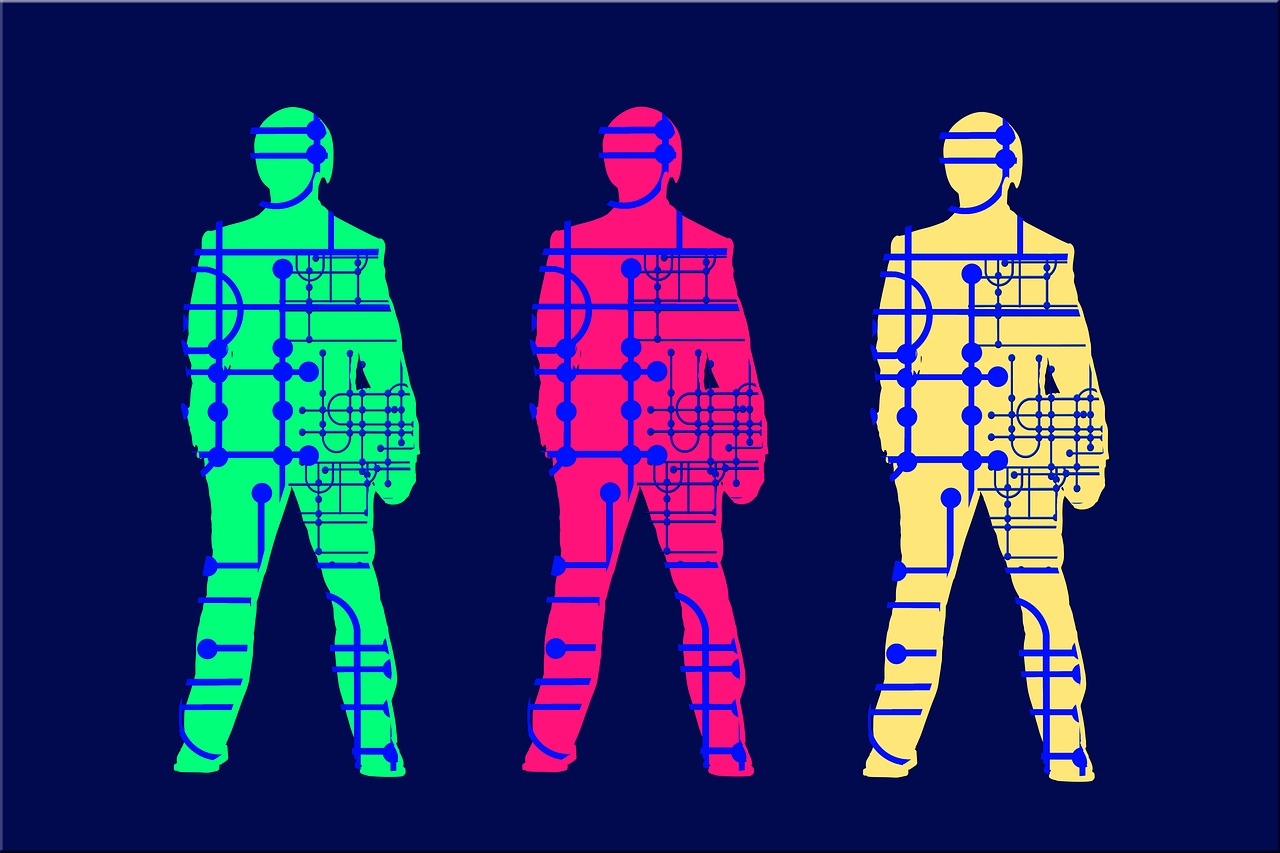
Technological Feasibility
The concept of transferring consciousness, whether through digital uploading or biological means, is tantalizingly futuristic. However, the of such a transfer is a complex puzzle that intertwines advancements in neuroscience, artificial intelligence, and computational technology. To understand where we stand today, let’s break down the current landscape of technology that could potentially support consciousness transfer.
First, we need to consider the advancements in neuroscience. Over the past few decades, we have made significant strides in mapping the human brain. Techniques such as functional magnetic resonance imaging (fMRI) and electroencephalography (EEG) allow us to observe brain activity in real-time. These technologies help us understand how different regions of the brain contribute to thoughts, emotions, and consciousness itself. However, we have yet to fully decode the intricate web of neural connections that create our unique consciousness. This is akin to trying to read a book without knowing the language; we might see the words, but their meaning eludes us.
Next, consider the field of artificial intelligence. AI has made remarkable progress in mimicking human-like behavior and decision-making processes. Yet, current AI systems lack genuine consciousness. They can simulate conversation and even learn from data, but they do not possess self-awareness or subjective experiences. This raises the question: can an AI ever truly 'understand' consciousness, or will it always be a mere imitation? The gap between artificial intelligence and human consciousness is still vast, and until we bridge this gap, the idea of uploading consciousness remains in the realm of science fiction.
Moreover, the concept of digital uploading hinges on our ability to create a comprehensive digital map of the brain's structure and function. This involves not just recording the connections between neurons but also understanding the biochemical processes that give rise to thoughts and feelings. Current technologies like connectomics are making strides in this area, but we are still far from achieving a complete understanding. Imagine trying to recreate a symphony by only having a few notes; without the full score, the essence of the music is lost.
To illustrate the current state of technology, consider the following table that summarizes key technological areas relevant to consciousness transfer:
| Technology | Current Status | Future Potential |
|---|---|---|
| Neuroscience Mapping | Advanced imaging techniques developed; partial brain mapping achieved | Complete understanding of consciousness mechanisms needed |
| Artificial Intelligence | AI can simulate human behavior but lacks self-awareness | Potential for self-aware AI remains speculative |
| Digital Uploading | Conceptual frameworks exist, but practical applications are in infancy | Requires breakthroughs in brain mapping and data processing |
In conclusion, while the idea of transferring consciousness is a thrilling prospect, the is still under exploration. We stand at a crossroads where advancements in neuroscience and artificial intelligence could one day lead to breakthroughs in consciousness transfer. However, it will take time, research, and perhaps even paradigm shifts in our understanding of what consciousness truly is. Until then, the dream of transferring consciousness remains a fascinating topic for both scientists and philosophers alike.
- What is consciousness transfer?
Consciousness transfer refers to the hypothetical ability to move an individual's consciousness from one body or medium to another, whether through digital means or biological methods.
- Is digital consciousness uploading possible?
As of now, digital uploading is largely theoretical. While there are advancements in brain mapping and AI, we have not yet developed the technology to upload consciousness.
- What are the ethical implications of consciousness transfer?
The ethical implications are vast, including issues of identity, consent, and the potential for exploitation. These questions need to be addressed as technology progresses.
- How does consciousness transfer relate to personal identity?
Consciousness transfer challenges our traditional notions of personal identity, as it raises questions about what it means to be 'you' if your consciousness can exist in multiple forms.

Biological Consciousness Transfer
The concept of is a fascinating and somewhat controversial topic that delves into the possibility of moving consciousness from one living body to another. Unlike digital uploading, which relies on technology and artificial constructs, biological transfer theorizes that consciousness could be physically relocated through biological means. Imagine a world where your thoughts, memories, and experiences could be seamlessly shifted to another human being, much like transferring files from one computer to another. It raises the question: could we ever truly share our consciousness, or is it an unattainable dream?
To understand how this might work, we must first consider the intricate relationship between the brain and consciousness. The brain is a complex organ, composed of billions of neurons that communicate through electrical impulses. Each thought, feeling, and memory is a product of these connections. In theory, if we could replicate or transfer these neural connections to another brain, we could, in essence, transfer consciousness. However, the challenges are immense. For instance, how do we ensure that the recipient's brain is compatible with the donor's consciousness? What if the biological environment of the new body alters the original consciousness in unforeseen ways?
Several scientific disciplines, including neuroscience and genetics, are exploring the potential mechanisms that could allow for biological consciousness transfer. Research into brain plasticity, for example, shows that the brain can adapt and rewire itself in response to new experiences. This adaptability raises intriguing possibilities for how consciousness might be transferred or even shared. However, the current understanding of consciousness is still rudimentary, and the ethical implications of such transfers could be profound, leading to questions about identity, agency, and the very nature of self.
Moreover, consider the potential implications for society. If consciousness transfer became a reality, it could redefine relationships and societal structures. Would we still hold the same value for individual lives? Could we create a society where people could experience life through others? These questions open up a Pandora's box of philosophical discussions about what it means to be human. To illustrate the potential benefits and risks, we can look at a table summarizing the pros and cons of biological consciousness transfer:
| Pros | Cons |
|---|---|
| Potential for shared experiences and knowledge | Ethical dilemmas regarding identity and consent |
| Possibility of extending consciousness beyond physical limitations | Risk of psychological trauma from identity loss |
| Advancements in understanding the human mind | Unforeseen biological consequences |
In conclusion, while the notion of biological consciousness transfer is tantalizing, it remains largely speculative. The scientific community continues to grapple with the complexities of consciousness itself, let alone the idea of transferring it between bodies. As we advance in our understanding of the brain and its functions, the dream of biological consciousness transfer may one day transition from science fiction to reality. However, until we can answer the myriad questions surrounding this concept, it will remain a captivating topic for both scientific inquiry and philosophical debate.
- What is biological consciousness transfer? It refers to the theoretical possibility of moving consciousness from one living body to another through biological means.
- How does consciousness relate to the brain? Consciousness is believed to arise from the complex interactions of neurons in the brain, with thoughts and memories being products of these connections.
- What are the ethical implications? Ethical concerns include questions about identity, consent, and the potential for psychological trauma.
- Is biological consciousness transfer currently possible? As of now, it remains a speculative concept, with no scientific methods available to achieve it.

Philosophical Implications
The concept of consciousness transfer is not just a scientific curiosity; it opens up a treasure trove of that challenge our understanding of what it means to be human. At the heart of this discussion lies the question of identity. If consciousness can be transferred from one body to another, what does that mean for the essence of who we are? Are we simply the sum of our experiences and memories, or is there something more intrinsic that defines our identity? This debate is not just academic; it has profound implications for how we perceive ourselves and others in a world where consciousness might be fluid.
One of the most compelling philosophical challenges posed by consciousness transfer is the issue of continuity. Traditional views of identity suggest that we are continuous beings, tied to our physical bodies and experiences. However, if we can upload our consciousness to a digital medium or transfer it to another biological entity, does that continuity break? Imagine waking up in a new body with all your memories intact but no physical connection to your past self. Would you still be the same person? Or would you become a new entity entirely? This thought experiment forces us to reevaluate our understanding of selfhood and personal identity.
Moreover, the implications extend to existential questions surrounding life and death. If consciousness can be transferred, does that mean we could achieve a form of immortality? The idea of living on through a digital avatar or another biological vessel is both thrilling and terrifying. It raises questions about the value of life and the natural cycle of existence. Would we still cherish our lives if we knew we could simply transfer our consciousness to another body? Or would this lead to a desensitization towards death, altering the very fabric of human experience?
To further illustrate these points, consider the following table that summarizes key philosophical questions related to consciousness transfer:
| Philosophical Question | Implication |
|---|---|
| What defines personal identity? | Identity may be more about memories and experiences than physical form. |
| Is continuity essential to selfhood? | Transfer may disrupt our understanding of being the same person over time. |
| What is the value of life? | Perceptions of life and death could change if consciousness can be preserved. |
In conclusion, the philosophical implications of consciousness transfer are vast and complex. They challenge our fundamental beliefs about identity, continuity, and the nature of existence itself. As we delve deeper into this topic, it becomes clear that the questions we face are not just about technology but about what it means to be human in an ever-evolving world.
Here are some common questions that arise when discussing the philosophical implications of consciousness transfer:
- Can consciousness be truly separated from the physical body?
- What happens to the original consciousness after transfer?
- How would society change if consciousness transfer became commonplace?
This question delves into the relationship between mind and body, challenging the dualistic view that separates them entirely.
This raises ethical concerns about identity and the potential for multiple versions of a person existing simultaneously.
This could lead to significant shifts in social dynamics, relationships, and our understanding of mortality.

Identity and Continuity
The concept of identity and continuity is at the heart of the debate surrounding the transfer of consciousness. When we think about what makes us who we are, we often consider our memories, experiences, and emotions. These elements combine to form a unique tapestry that defines our personal identity. But what happens when we introduce the idea of transferring consciousness? Can we still claim to be the same person if our consciousness is moved to another body or digital medium? This question opens a Pandora's box of philosophical inquiries that challenge our traditional understanding of self.
To illustrate this, imagine a scenario where you could upload your consciousness into a virtual reality environment. In this new space, you could interact with others in ways that transcend the limitations of your physical body. However, if your consciousness exists in this digital realm, are you still the same person who lived in the physical world? Or have you become a new entity altogether? This dilemma highlights the complexities of identity in the context of consciousness transfer.
Moreover, the continuity of self is another critical aspect to consider. Continuity suggests that there is an unbroken chain that connects our past selves to our present and future selves. If consciousness can be transferred, does this continuity remain intact? For instance, if a person’s memories and personality traits are preserved during the transfer, can we confidently say that the new entity is the same person? Or is it merely a replica, a shadow of the original self? These questions force us to rethink what it means to be "you."
Philosophers have long debated these issues, presenting various theories to explain personal identity. Some argue for a psychological continuity model, which posits that as long as there is a connection between past and present experiences, identity is preserved. Others advocate for a biological continuity model, suggesting that our physical bodies play an essential role in defining who we are. The challenge with consciousness transfer is that it blurs these lines, making it difficult to classify which model applies.
To further complicate matters, consider the implications of multiple consciousness transfers. If one individual’s consciousness can be copied and transferred to multiple bodies or digital platforms, does this mean that multiple versions of the same person can exist simultaneously? This scenario raises profound ethical and philosophical questions about individuality and the essence of being. Is it possible for one person to be in several places at once, and what does that mean for our understanding of personal identity?
In summary, the relationship between identity and continuity in the context of consciousness transfer is a multifaceted issue that challenges our preconceived notions of self. As technology advances and the idea of transferring consciousness becomes less of a science fiction fantasy and more of a tangible possibility, we must grapple with these profound questions. The exploration of identity and continuity will undoubtedly shape the future of how we perceive ourselves and our existence.
- What is consciousness transfer? Consciousness transfer refers to the theoretical process of moving a person's consciousness from one body or medium to another, potentially preserving their identity and experiences.
- Can consciousness be uploaded to a computer? While the concept of digital consciousness uploading is explored in science fiction, current scientific understanding and technology have not yet made this a reality.
- What are the ethical implications of consciousness transfer? The ethical implications include questions about identity, the nature of self, and the moral considerations of creating digital or replicated versions of individuals.
- How does consciousness transfer affect our understanding of life and death? If consciousness can be transferred, it challenges traditional views on mortality, potentially redefining what it means to live and die.

Existential Questions
When we dive into the concept of consciousness transfer, we inevitably stumble upon a plethora of that challenge our very understanding of life, death, and what it means to be human. Imagine for a moment that you could transfer your consciousness into another body or even a digital realm. Would you still be you? Or would you become a mere echo of your former self, existing in a new vessel but devoid of the essence that makes you unique? These questions are not just philosophical musings; they strike at the core of our identity and existence.
One of the most profound implications of consciousness transfer is the potential redefinition of mortality. If consciousness can be transferred, does that mean we could essentially live forever? This idea is both exhilarating and terrifying. The thought of evading death by simply moving to a new body or a digital platform raises questions such as:
- What happens to the original consciousness? Is it destroyed, or does it continue to exist alongside the new one?
- If consciousness can be copied, does the copy hold the same rights as the original?
- Does living indefinitely diminish the value of life itself?
Furthermore, the concept of a transferable consciousness blurs the lines between individuality and continuity. If we can transfer our consciousness, what happens to our memories, experiences, and emotions? Are they simply data points that can be uploaded and downloaded, or are they integral components of our identity? This leads us to ponder whether our essence is tied to our physical form or if it can exist independently of it.
Moreover, the implications of consciousness transfer extend beyond the individual. They ripple through society, affecting our relationships, our laws, and even our moral frameworks. For instance, if someone were to live indefinitely, how would that impact their relationships with others who age and die? Would we witness the emergence of new societal structures to accommodate beings who have transcended the traditional human lifespan? The very fabric of our social fabric could undergo a dramatic transformation.
In essence, the existential questions surrounding consciousness transfer compel us to reconsider our beliefs about life, death, and what it means to be truly alive. As we stand at the precipice of technological advancement, we must ask ourselves: Are we ready to embrace these profound changes, or will we cling to the familiar boundaries of human existence? The answers may shape not only our future but the future of humanity itself.
- What is consciousness transfer? - Consciousness transfer refers to the theoretical process of transferring an individual's consciousness from one body or medium to another, potentially allowing for a form of immortality.
- Is consciousness the same as the brain? - While closely related, consciousness encompasses more than just brain activity; it includes thoughts, emotions, and self-awareness.
- What are the ethical implications of consciousness transfer? - Ethical considerations include the rights of digital identities, the potential for identity theft, and the moral ramifications of extending life indefinitely.
- Can consciousness be transferred to a computer? - Digital uploading is a theoretical concept that suggests consciousness could be mapped and transferred to a digital medium, but it remains largely speculative at this stage.
Frequently Asked Questions
- What is consciousness transfer?
Consciousness transfer refers to the theoretical process of moving a person's consciousness from one body or medium to another. This concept raises fascinating questions about identity, existence, and what it truly means to be 'you'.
- Is digital consciousness uploading possible?
While digital uploading is a popular concept in science fiction, it remains largely theoretical at this point. Current advancements in neuroscience and artificial intelligence are promising, but we are still far from achieving a technology that can accurately replicate or transfer consciousness.
- What are the ethical implications of consciousness transfer?
The ethical implications are vast and complex. They include questions of identity, ownership of one's consciousness, and the potential societal impacts of creating digital or biological duplicates of individuals. It's a moral minefield that society must navigate carefully.
- Can consciousness be transferred biologically?
Biological consciousness transfer is a speculative idea that suggests consciousness could be moved between living beings. However, the scientific understanding of consciousness is still in its infancy, making this concept highly controversial and challenging to validate.
- How does consciousness transfer challenge our understanding of identity?
Consciousness transfer challenges traditional views of identity by questioning what makes someone 'themselves'. If consciousness can exist independently of the body, it raises profound questions about continuity and whether a transferred consciousness is still the same person.
- What existential questions does consciousness transfer raise?
Consciousness transfer brings up existential questions about life, death, and the nature of existence itself. If we could transfer our consciousness, would we truly live forever? Or would we merely create a copy of ourselves, leaving the original behind?

